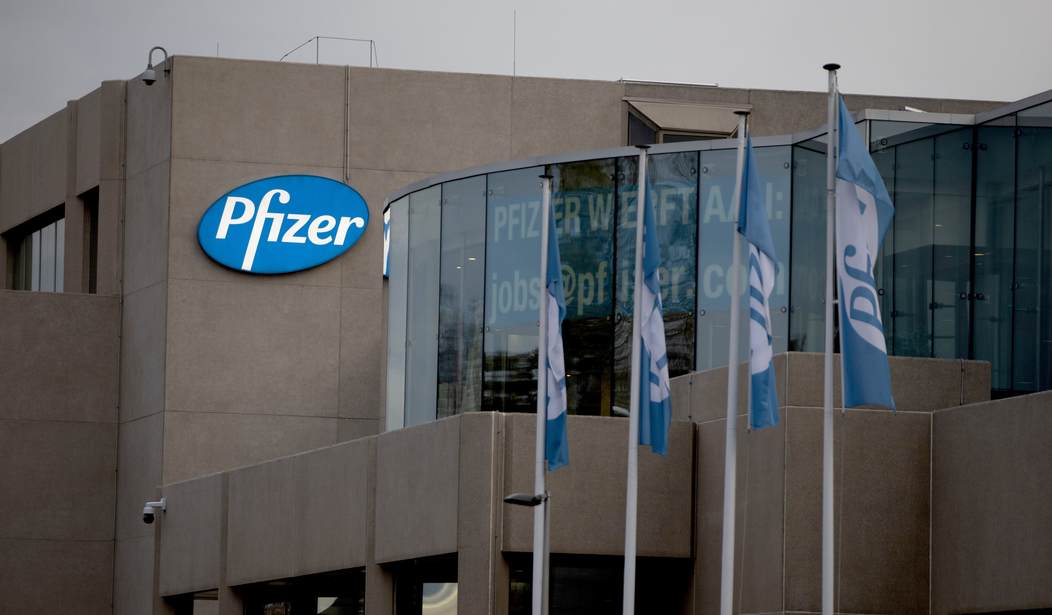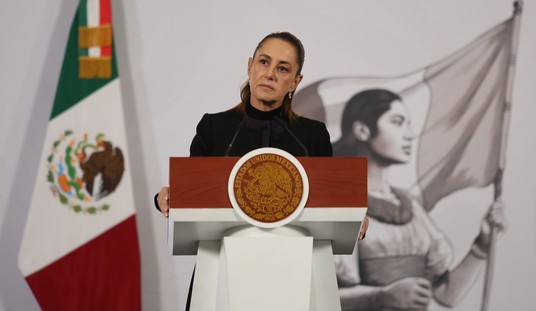Sometimes, it is good to be Pfizer — especially when there is a pandemic they can leverage to their advantage to create a monopolistic market-share of a vaccine that government literally buys from them and markets to patients, or when they can manipulate the government into protecting their data for another half-century. Other times, it isn’t so good to be Pfizer, as was the case with Project Veritas’ story which showed Pfizer employees contradicting the government’s vaccine narrative.
And yet other times, Pfizer runs into a situation so dire, it could destroy their business for a decade to come. In pharmaceuticals, research and data regarding new drug candidates, including their COVID-19 vaccine formula, could potentially be worth billions. Should a competitor get their hands on certain research and data, they would be able to sidestep years of costly lab research allowing for an early and inexpensive release of a competitor drug.
In October of this year, Pfizer became aware of an employee, Chun Xiao Li, who had copied thousands of files from Pfizer’s proprietary systems to both an online file storage system (Google Drive), and her personal computer. These files allegedly contained information regarding the formula of Pfizer’s COVID-19 vaccine as well as other cancer drug formulas on which Pfizer is currently working. To say that these documents could be worth billions is not an exaggeration.
After confronting Li regarding the questionable actions, Li appeared to cooperate, according to the lawsuit filed against Li on November 21st.
From the suit:
“What Pfizer can say for sure is that its soon-to-be former employee Chun Xiao (Sherry) Li uploaded over 12,000 files— including scores of confidential Pfizer documents—from her Pfizer-issued laptop to a personal Google Drive account and onto other personal devices. Upon learning of Ms. Li’s troubling conduct, Pfizer addressed it with her. Although Ms. Li initially gave the appearance of cooperation, it turns out that Ms. Li instead has misled Pfizer about what she took, how she took it, when and why she did it, and where those files (and possibly others) can be found today.”
Pfizer believes that Li was on her way to Xencor, a rival pharmaceutical company, which has been working on cancer drugs and likely would have been interested in Pfizer’s monoclonal cancer treatments, avelumab and elranatamab. Xencor denies any involvement and thus far, has not made any comment regarding the suit or Ms. Li’s potential employment with Xencor. According to Pfizer and their filed suit, Li’s emails suggested she had accepted a position at Xencor and would be starting by the end of November 2021.
However, it is the details of this case that should have everyone alarmed. First, by Pfizer’s own admission, they have no clue as to where the documents went and who has possession of them today. Pfizer only assumes this was an act committed for the benefit of Xencor, even though again, there’s no proof that Xencor or any of its employees has possession of any of those documents or files. Pfizer’s suit alleges that “somebody else” may be in possession of the proprietary information, naming additional “Does” (essentially a legal placeholder for additional to-be-named parties to the suit):
“Had Ms. Li left Pfizer honorably, she would not be named in this Complaint. But she made a different choice: on her way out the door, she transferred onto personal accounts and devices over 12,000 files, scores of which contain Pfizer confidential and trade-secret information, and tried covering her tracks repeatedly. She went so far as to provide Pfizer’s security team a decoy laptop, leading Pfizer to believe it was the one she used to download the 12,000 files from her Google Drive account. Forensic analyses confirmed it was not, and Ms. Li (or somebody else, including potentially DOES 1-5) likely remains in possession of the actual computer that contains those 12,000 files.”
Yet, there are numerous issues with this suit that I think that Pfizer is intentionally ignoring, or simply doesn’t have the evidence to prove just yet. And even when Pfizer does get the information, or can track down who has the documents, what can they do about it?
If it isn’t Xencor, then who does have those files? The potential answer to this is what spells total disaster for Pfizer. First, it is important to note that Li is a Chinese National, recruited by Pfizer from China in 2006. Li’s presumed publication history, which matches her timeline, shows that she also researches in conjunction with Nanjing University in China. Interestingly enough, Nanjing University is also conducting a study into the effectiveness of COVID vaccines.
From the suit:
“On August 2, 2006, Pfizer hired Ms. Li as Associate Director of Statistics in Pfizer’s Global Product Development (“GPD”) group based in China. On or around August 22, 2016, Ms. Li transferred to Pfizer’s facility in La Jolla, California and continued her role as Associate Director of Statistics.”
And about the GPD group:
“Pfizer’s GPD group is responsible for evaluating drug efficacy and safety in human clinical trials to obtain regulatory approval for drugs. Given her role and responsibilities as Associate Director of Statistics, Ms. Li had access to highly confidential, proprietary, and trade-secret information related to numerous vaccines and medications, including the COVID-19 vaccine, avelumab, and elranatamab.”
Li was working on proprietary and confidential information about drugs, treatments, data, and formulas which could be worth a significant amount. Additionally, it is no secret that China, or more specifically, the government of China, is no respecter of intellectual property laws. As we have previously covered here at RedState, China hacked into the Department of Defense, stole research regarding the development of the F-35 Joint Strike Fighter, and then later, with the help of Hunter Biden and the approval of the Obama Administration, purchased a company that made anti-vibration technology for that very aircraft. A quick comparison of the F-35 and J-31 will show you that China doesn’t innovate a darn thing. They steal it.
This leaves Pfizer in a difficult position if the information was indeed sent to China. First, Pfizer would have next to zero recourse against China or any Chinese national companies in possession of that information. Second, even if they could take legal action, would Pfizer want to take that action with the potential that the Chinese government could retaliate or even ban Pfizer from conducting business in one of the largest markets in the world? It certainly could explain why Pfizer is being so gun-shy when it comes to highlighting Li’s country of origin or even suggesting that she could be working with Chinese officials.
There is, however, another question we should be asking: Where is the FBI? Regardless of the type of material stolen or the destination of that material, there doesn’t appear to be, at this point, any investigation into Li or her actions at Pfizer. We know the FBI is busy crowdsourcing their entire investigation into January 6th, tracking down angry members of the PTA, and flying drones over BLM protests in Wisconsin, but where are they on this case? The Economic Espionage Act (EEA) of 1996 is a federal law that makes this activity illegal.
From the DOJ:
“The EEA contains two separate provisions that criminalize the theft or misappropriation of trade secrets. The first provision, codified at 18 U.S.C. § 1831, is directed towards foreign economic espionage and requires that the theft of the trade secret be done to benefit a foreign government, instrumentality or agent. The second provision makes criminal the more common commercial theft of trade secrets, regardless of who benefits. 18 U.S.C. § 1832.
There are a number of important features to the EEA, including a provision for the criminal forfeiture of any property or proceeds derived from a violation of the EEA. 18 U.S.C. § 1834. The EEA also permits the Attorney General to institute civil enforcement actions and obtain appropriate injunctive relief for violations. 18 U.S.C. § 1836. Further, because of the recognized difficulty of maintaining the secrecy of a trade secret during litigation, the EEA requires that courts take actions, as necessary, to preserve the confidentiality of the trade secret. 18 U.S.C. § 1835. The EEA also covers conduct occurring outside the United States where the offender is a citizen or permanent resident alien of the United States, or an act in furtherance of the offense was committed in the United States. 18 U.S.C. § 1837.”
The language is pretty clear. This law applies to both US Citizens and foreign nationals (resident aliens), as well as whether or not the stolen intellectual property benefits a foreign country or anyone else. So again, where is the FBI? Why hasn’t Li been arrested and held on suspicion of violating this law, until which time the destination of the stolen information is determined? At the very least, why hasn’t Li been prohibited from leaving the country? Why is it on Pfizer to civilly pursue action when criminal law covers this action?
The above questions require answers, but yet another question that comes to mind is: Where is the media on this story? The formula for the COVID-19 vaccine was stolen, a topical and important issue, and yet, this story hasn’t made a single major news network to date? Would not corporate espionage be a story? How about foreign espionage?
Stay tuned as we continue to look into this story.













Join the conversation as a VIP Member